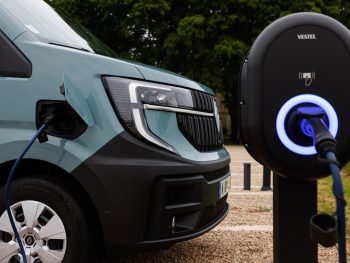Vans need to be at the centre of the reported government rethink on the Zero Emissions Vehicle (ZEV) mandate, backed by a range of eLCV incentives for vehicle operators. FleetCheck has warned.

Carmakers including Nissan have warned that current ZEV mandate targets are unfeasible and The Financial Times has reported that transport secretary Louise Haigh is in “listening” mode when it comes to ideas that would help.
The Government has said it won’t relax the sales targets, but is open to working with vehicle makers on flexibilities.
However, FleetCheck has warned of its concerns that van targets, where OEMs are furthest adrift of hitting their ZEV mandate targets, could be overlooked at it’s UK-based car manufacturers that are the most politically visible in these discussions.
Managing director Peter Golding pointed out that electric vans sales in 2024 looked unlikely to show any growth on the previous year, and said a wide variety of structural issues remained in place.
“Electric vans themselves tend to be around 50% more expensive than ICE equivalents and bring range and payload compromises that simply make them difficult to use for many fleets. Creating a home charging infrastructure for van drivers is proving more difficult than for cars while public chargers are expensive to use and in some places, availability remains poor.
“The Government needs to recognise that these very real reasons are behind slow electric van adoption and provide inducements for businesses in much the same way that Benefit-in-Kind taxation advantages have powered widespread electric company car adoption.”
Golding added that there was a danger that the Government’s listening exercise could create disincentives to continue using ICE vans rather than incentivise electric equivalents.
“We know that the Government doesn’t have huge amounts of money to throw around and also that politically, it doesn’t tend to shy away from unpopular decisions, such as removing the winter fuel allowance. It would be easier for them to create disincentives for electric van use such as zero emissions zones for commercial vehicles, rather than incentives such as tax or purchasing gains.
“What the fleet sector needs to make clear is that we require help with solutions to the very real problems fleets are encountering when it comes to adoption. Gestures are not going to work at this point.”

